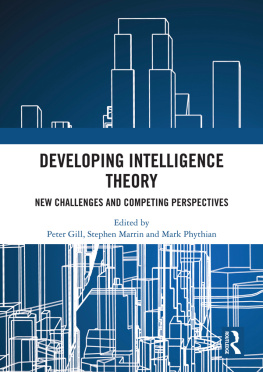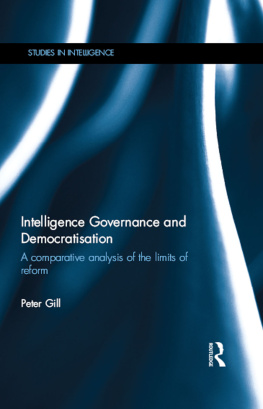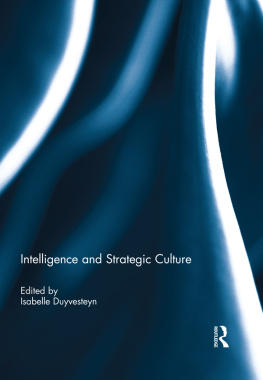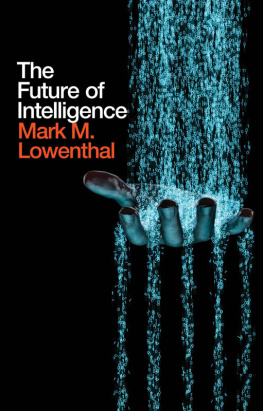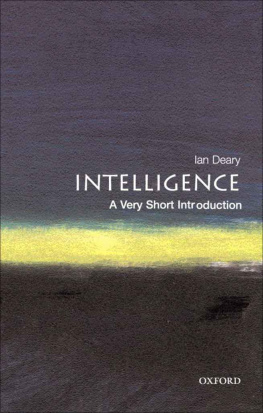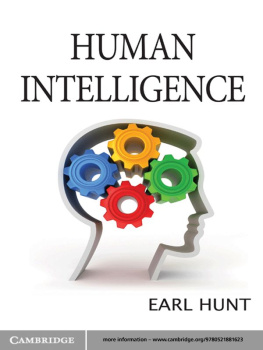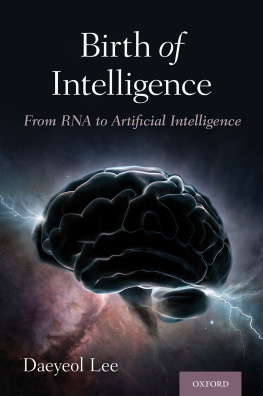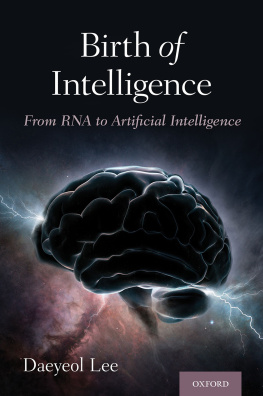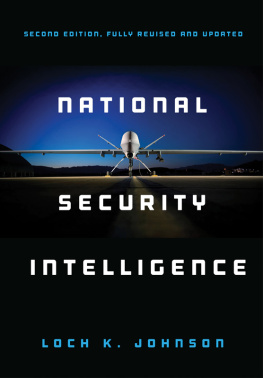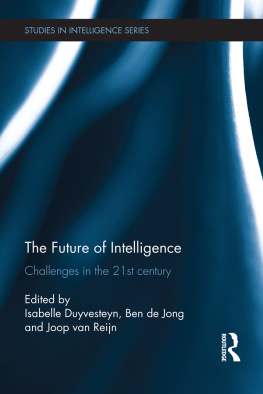Developing Intelligence Theory
Developing Intelligence Theory analyses the current state of intelligence theorisation, provides a guide to a range of approaches and perspectives, and points towards future research agendas in this field. Key questions discussed include the role of intelligence theory in organising the study of intelligence, how (and how far) explanations of intelligence have progressed in the last decade, and how intelligence theory should develop from here.
Significant changes have occurred in the security intelligence environment in recent yearsincluding transformative information technologies, the advent of new terrorism, and the emergence of hybrid warfaremaking this an opportune moment to take stock and consider how we explain what intelligence does and how. The material made available via the 2013 Edward Snowden leaks and subsequent national debates has contributed much to our understanding of contemporary intelligence processes and has significant implications for future theorisation, for example, in relation to the concept of surveillance.
The contributors are leading figures in Intelligence Studies who represent a range of different approaches to conceptual thinking about intelligence. As such, their contributions provide a clear statement of the current parameters of debates in intelligence theory while also pointing to ways in which the study of intelligence continues to develop.
This book was originally published as a special issue of Intelligence and National Security.
Peter Gill is an Honorary Visiting Research Fellow at the University of Leicester, UK. He has written Policing Politics: Security Intelligence and the Liberal Democratic State (1994), Rounding Up the Usual Suspects?: Developments in Contemporary Law Enforcement Intelligence (2000), and Intelligence Governance and Democratisation: A Comparative Analysis of the Limits of Reform (2016). He has also co-authored Intelligence in an Insecure World (with Mark Phythian, 3rd ed. 2018) and Democratization of Intelligence (with Michael M. Andregg, 2015).
Stephen Marrin is an Associate Professor at James Madison University, Virginia, USA and previously worked as an analyst with the Central Intelligence Agency and the Government Accountability Office (USA). He is a prolific author on aspects of intelligence analysis and the former Chair of the Intelligence Studies Section of the International Studies Association, Storrs, USA. In 2004 the National Journal profiled him as one of the ten leading experts on the subject of intelligence reform.
Mark Phythian is a Professor of Politics in the School of History, Politics & International Relations at the University of Leicester, UK. He has both authored and edited several books on aspects of intelligence, including co-authoring Intelligence in an Insecure World (with Peter Gill, 3rd ed. 2018). He is the Co-Editor of the journal Intelligence and National Security and a Fellow of the Academy of Social Sciences, London, UK.
First published 2019
by Routledge
2 Park Square, Milton Park, Abingdon, Oxon, OX14 4RN, UK
and by Routledge
52 Vanderbilt Avenue, New York, NY 10017, USA
Routledge is an imprint of the Taylor & Francis Group, an informa business
Introduction, Chapters 12, 410 2019 Taylor & Francis
Chapter 3 was authored as part of the Contributors official duties as an Employee of the United States Government and is therefore a work of the United States Government. In accordance with 17 U.S.C. 105, no copyright protection is available for such works under U.S. Law.
With the exception of Chapter 3, no part of this book may be reprinted or reproduced or utilised in any form or by any electronic, mechanical, or other means, now known or hereafter invented, including photocopying and recording, or inany information storage or retrieval system, without permission in writing from the publishers.
Trademark notice: Product or corporate names may be trademarks or registered trademarks, and are used only for identification and explanation without intent to infringe.
British Library Cataloguing-in-Publication Data
A catalogue record for this book is available from the British Library
ISBN13: 978-0-367-13843-1
Typeset in Myriad Pro
by codeMantra
Publishers Note
The publisher accepts responsibility for any inconsistencies that may have arisen during the conversion of this book from journal articles to book chapters, namely the possible inclusion of journal terminology.
Disclaimer
Every effort has been made to contact copyright holders for their permission to reprint material in this book. The publishers would be grateful to hear from any copyright holder who is not here acknowledged and will undertake to rectify any errors or omissions in future editions of this book.
Contents
Peter Gill and Mark Phythian
Gregory F. Treverton
Stephen Marrin
John F. Fox Jr.
Mark Phythian
Mark Stout and Michael Warner
Hamilton Bean
Jeffrey P. Rogg
Gunilla Eriksson
Aaron F. Brantly
Peter Gill
Guide
The chapters in this book were originally published in the journal Intelligence and National Security, volume 33, issue 4 (June 2018). When citing this material, please use the original page numbering for each article, as follows:
Introduction
Developing intelligence theory
Peter Gill and Mark Phythian
Intelligence and National Security, volume 33, issue 4 (June 2018) pp. 467471
Chapter 1
Theory and practice
Gregory F. Treverton
Intelligence and National Security, volume 33, issue 4 (June 2018) pp. 472478
Chapter 2
Evaluating intelligence theories: current state of play
Stephen Marrin
Intelligence and National Security, volume 33, issue 4 (June 2018) pp. 479490
Chapter 3
Intelligence in the Socratic philosophers
John F. Fox Jr.
Intelligence and National Security, volume 33, issue 4 (June 2018) pp. 491501
Chapter 4
Intelligence and the liberal conscience
Mark Phythian
Intelligence and National Security, volume 33, issue 4 (June 2018) pp. 502516
Chapter 5
Intelligence is as intelligence does
Mark Stout and Michael Warner
Intelligence and National Security, volume 33, issue 4 (June 2018) pp. 517526
Chapter 6
Intelligence theory from the margins: questions ignored and debates not had
Hamilton Bean
Intelligence and National Security, volume 33, issue 4 (June 2018) pp. 527540
Chapter 7
Quo Vadis? A comparatist meets a theorist searching for a grand theory of intelligence
Jeffrey P. Rogg
Intelligence and National Security, volume 33, issue 4 (June 2018) pp. 541552
Chapter 8
A theoretical reframing of the intelligencepolicy relation
Gunilla Eriksson
Intelligence and National Security, volume 33, issue 4 (June 2018) pp. 553561
Chapter 9
When everything becomes intelligence: machine learning and the connected world

